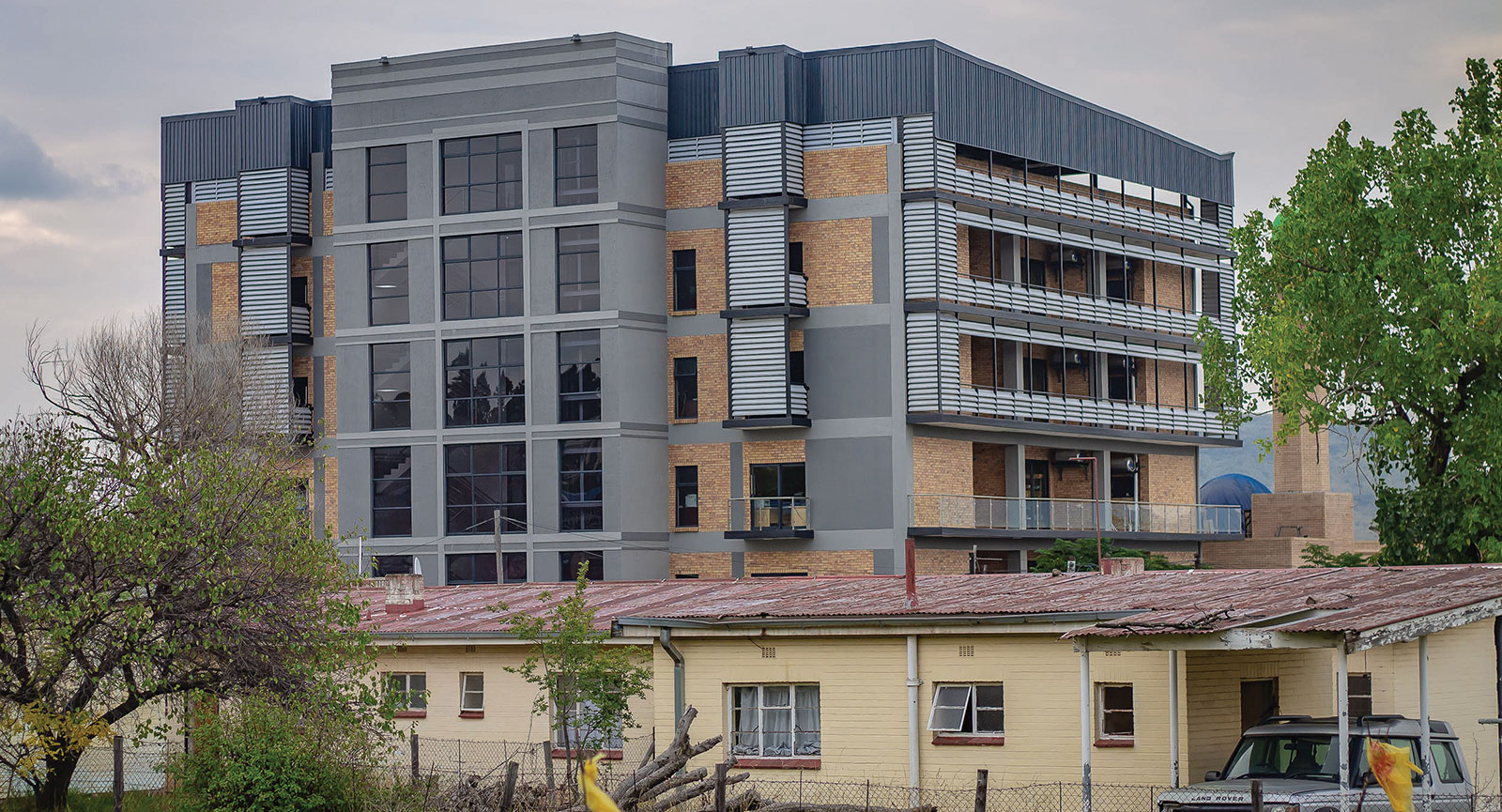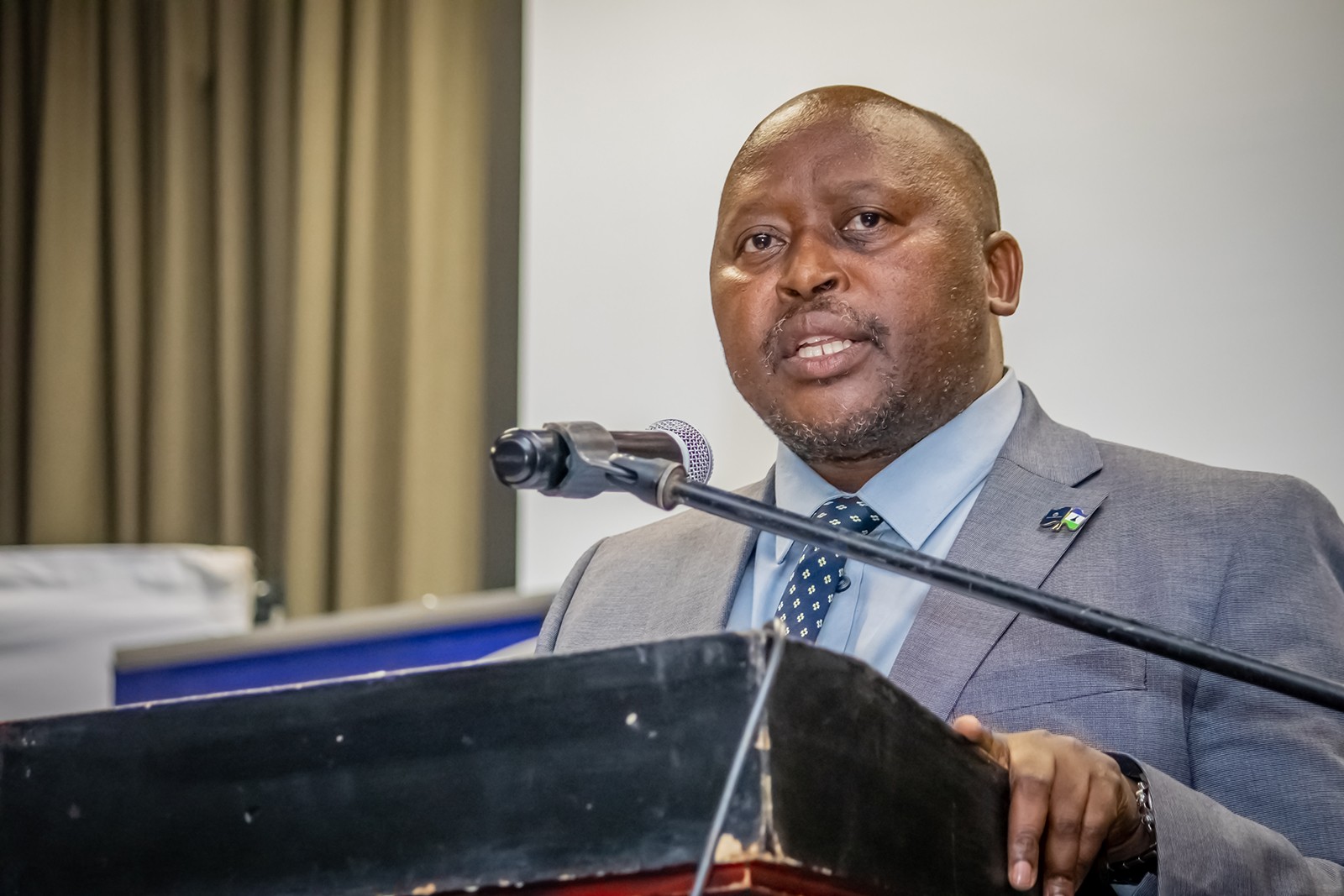M260m standards hub stuck in bureaucracy

SHARE THIS PAGE!
The long-awaited construction of the multi-million maloti Lesotho Standard Institution (LSI) headquarters at Ha Tikoe Industrial Estate in Maseruis facing significant delays due to a myriad challenges including payment holdups, internal administrative hurdles, and government red tape.
The national standards body was estimated to cost M103 million in 2013 when the project was mooted but construction only began in January this year – 12 years later – at a whopping M260 million.
Government says the huge jump in cost was due to various reasons including inflation and work changes, which necessitated extended timeframes.
Lack of proper coordination between government departments and ministries has also been fingered for the perennial delays.
Although construction eventually kicked off early this year, slow progress and financial stability is threatening the project’s timeline.
Government says it has allocated M90 million during the current 2025/2026 financial year as part of the M260 million needed for the project.
Molebatsi Rabolinyane, Director of Quality, Metrology, and Technical Regulations in the Ministry of Trade, Industry, and Business Development said funds for the project would be disbursed in phases depending on progress made.
“We don’t give out the whole amount at once. The ministry budgets for what it is going to spend for that financial year, and the money is released in portions of the project last more than a year,” he said in an interview with theReporter this week.
Rabolinyane also acknowledged that budgetary constraints have delayed payments to contractors from time to time.
Once complete, the facility will house:
- 37 specialised laboratory rooms (textile, wool and mohair, metrology, chemical, food, pharmaceutical, electro-technical, agricultural inputs, automobile, etc.)
- 12 rooms for technical committees and training
- 2 rooms for publications and sales
- A documentation centre and 27 office spaces
The project is seen as critical to enhancing the country’s laboratory and quality assurance infrastructure, which supports sectors such as agriculture, manufacturing, health, and consumer safety.
The project manager of the main contractor, Qingjian (CNQC) and Founda Construction Joint Venture George Zizhou told this publication that his company has not received any payment since work began on January 22, 2025.
Zizhou said according to their contract, they are supposed to be paid monthly after submitting invoices for work done.
He noted that CNQC was currently using their own resources to keep the work going, including paying the staff, because they have not received any payment since they signed the contract.
“We should be operating at full capacity, but due to financial constraints, we are not,” Zizhou said.
More than 65 workers active on site, along with seven sub-contractors supplying critical materials like cement and gabion boxes are also been paid out of the main contractor’s pocket.
Zizhou further indicated that although the project was originally scheduled for completion in May 2026, it is now expected to finish in September 2026 due to delays including non-payment by the ministry.
Electricity was only connected to the site last month by the Lesotho Electricity Company (LEC) after a long wait.
Additionally, unexpected conditions during excavation work had also forced a redesign of the foundation, he said.
“The original plan called for digging five meters deep, but the discovery of a high-water table has limited current progress to three meters, requiring changes to the structural design,” Zizhou explained.
In response, Rabolinyane mentioned several reasons for delays in payments, including complications from the joint venture arrangement of the contractors, which had not been properly formalised in time for payment of the first invoice.
“When it came time for payment, it was discovered that the payment had to be made to the joint venture, not to a single contractor. By the time this was resolved, a lot of time had passed,” he said.
He added that further delays were caused by the internal approval process within the Ministry of Finance and Development Planning and the rotation of staff in the finance department of the Ministry of Trade, Industry and Business Development, many of whom are still undergoing orientation.
“When dealing with the first payment, officials need to satisfy themselves before releasing funds. That takes time,” Rabolinyane explained.
The Ministry of Public Works and Transport was initially involved in the project, particularly in the early stages when the accommodation schedule was being drafted, he said. However, disagreements over project control and funding led to a breakdown in collaboration.
“We talked with them (public works ministry) in the beginning, but later decided to manage the project internally,” Rabolinyane noted.
“We wrote to them in February 2025 requesting their expertise, but they did not respond. Even during contractor evaluations, they also did not respond,” he claimed.
He stressed that the most important thing is for the facility to be completed as delays have financial consequences, both for government and the public.
“The solution lies in training our people and improving internal systems. We believe this project will not fail like others,” he added.
The public relations officer of the Ministry of Public Works and Transport, Ntumeleng Ntŝekhe-Moloinyane said they were not responsible for delays in paying contractors.
Ntŝekhe-Moloinyane explained that funds for the projects were held by the Ministry of Trade, Industry and Business Development.
“Procurement processes are done at respectful government ministries but the work is done and supervised by us as the public works ministry,” she said.
The Lesotho Standard Institution is just a tip of the iceberg. The government has in the past been forced to fork out millions of maloti to complete projects that have been on hold for as long as 15 years due to escalating costs caused by protracted delays, poor implementation, and contractor disputes.
Government has attributed these delays to lack of institutional and regulatory arrangements, citing that spirited efforts are now being made to complete some of the projects, albeit at a huge cost to taxpayers. The projects of national significance lacking behind include the National Museum and Art Gallery and a new palace for His Majesty, King Letsie III.

M260m standards hub stuck in bureaucracy
4 days ago
Man seeks divorce over cheating allegations
6 days ago
IEC looks for new commissioners
6 days ago

Summit targets Lesotho’s jobs crisis
7 days ago


BEDCO, RSL to train youth entrepreneurs
9 days ago
Sehlabathebe power project to resume
11 days ago
Manufacturers cry foul over bricks imports
11 days ago